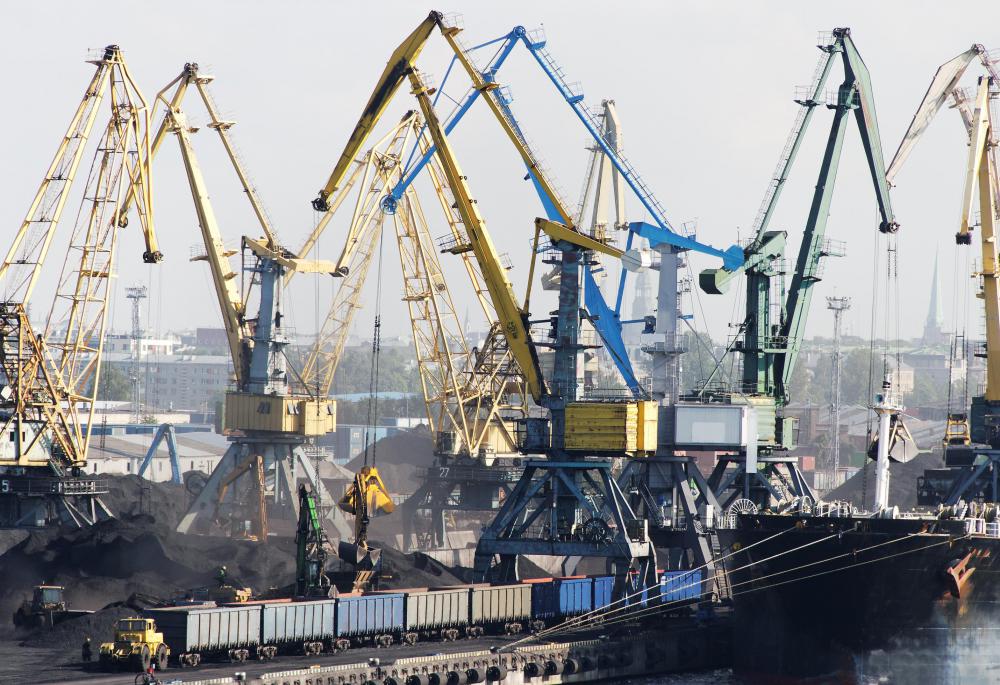At WiseGEEK, we're committed to delivering accurate, trustworthy information. Our expert-authored content is rigorously fact-checked and sourced from credible authorities. Discover how we uphold the highest standards in providing you with reliable knowledge.
What Are the Different Methods of International Trade Regulation?
International trade regulation is a complex process because there are different rules governing the importing and exporting of goods that sometimes interfere with one another. In the U.S., the government establishes the policies and standards that are enforced throughout the country for trade commerce, and individual states have some authority, as well. The World Trade Organization (WTO) is expected to provide a global approach for enforcing regulation, and it seeks to protect trade nations from any fraudulent or unfair trade practices. Specific methods might include using rules to guard countries from receiving any harmful goods or items that might have been produced in an illegal manner, all the while keeping the markets competitive.
Before any methods of international trade regulation can be applied, regulators must become aware of potentially damaging behaviors that emerge. Governing bodies identify possible and existing threats to international trade, and set standards accordingly. These laws exist to protect the countries and businesses involved with trade in addition to the end consumer who ultimately may consume or otherwise use imported goods.

The methods used to enforce international trade regulation include the implementation of measures to prevent monopolies while still promoting fair competition. This might include barring any one organization from only participating in commerce with a single nation in what is deemed a closed-economy environment. Regulation is primarily established in a way that promotes an open economy where importing and exporting activity can occur more freely.
Protectionism can be highly damaging to any economy and especially threatening to a country that relies heavily on international trade. Occurrences of protectionism may arise more frequently under contracting economic conditions when a country may attempt to reduce competition from foreign nations by placing restrictions, quotas, and high taxes on trade goods. A method of international trade regulation could include an attempt to create and enforce laws that are designed to curb protectionist practices.
Methods of international trade regulation are often established in such a way that the business of trade is not stifled. Regulation also exists to prevent compromising or unethical practices among trade participants. This can be difficult with competing standards of different nations.
Common goals between countries, however, may be supported with the creation of some voluntary agreement between participating trade nations. A document might outline certain practices that are deemed acceptable and unacceptable throughout international trade. These themes might include an agreement to import and export items that are produced in a way that is not harmful to the environment, for instance, and products that will similarly produce environmentally friendly results for consumers.
AS FEATURED ON:
AS FEATURED ON:











Discussion Comments
@fBoyle-- I agree that protectionism is harmful, but some is inevitable because each country is trying to protect its own market and economy. Still, I'd say that trade regulation and the openness of the global market has improved a lot since the days of mercantilism.
There has to be international trade regulation but I don't think that the system we have now is good enough. I don't think that the global "open" economy is as open as it should be. Many developing nations are kept out of trade organizations and agreements. Even when they're not, first world countries use subsidies and tariffs to essentially keep these countries out of their market. So much for an open economy.
Trade regulation should make trade possible and fair for everyone. But it actually makes trade possible and fair for some countries.
We just had a guest speaker in class who works at the WTO and he gave us an overview of what the organization does. It's nothing short of amazing in my view because it really is able to regulate how countries trade with one another. Considering the number of members it has and the number of issues that countries have with one another about trade, it's a very difficult thing to do.
The speaker talked a lot about the dispute resolution process at the WTO. Apparently, if two members. have a dispute about trade, such as tariffs, they can go to the WTO for help. The WTO can even penalize members who break trade rules and it's quite effective at it too.
Post your comments